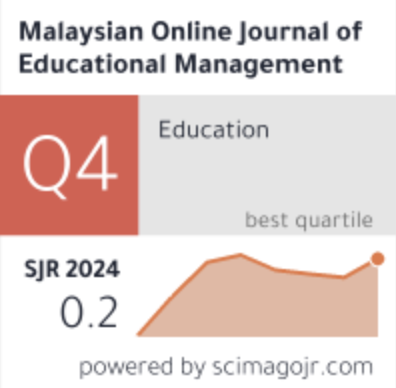SUSTAINABILITY EDUCATIONAL LEADERSHIP AND MANAGEMENT FOR STEM-BASED APPROACH: AN EXPERT QUALITATIVE FORMULIZATION
Keywords:
STEM Leadership, STEM Management, STEM Sustainability Leadership, STEM Based ResearchAbstract
The success of STEM-based teaching in a school is a continuous effort requiring full support and commitment of all teachers regardless of the school’s leaders. Teachers’ role as instructional leaders is essential in providing a meaningful learning experience to the students. This objective of this study is to formulate a STEM-based educational leadership and management concept to direct schools to support STEM education goals. A qualitative research approach was employed, specifically a case study involving the expertise of seven researchers from various disciplines within the educational STEM fields. There are four themes with several elements respectively identified to sustain leadership and management of STEM-based teaching using logic-ontology, resulting in the Cohen Kappa coefficient index at 0.86. The four themes are Motivational Leadership in STEM-based Approach (STEM-ML), STEM-based Academic Leadership (STEM-AL), STEM-Thinking Leadership (STEM-TL), and Technological Changing Leadership (STEM TCL). These themes are pivotal in influencing the sustainability of interdisciplinary research to foster national and societal development as per the formulated framework. Consequently, the concept of STEM sustainability leadership and management holds utmost significance, as it ensures the development's sustainability on social, emotional, economic, and environmental fronts. However, this formulization is developed by limited participants. Thus, it is recommended to validate this framework using a wide range of samples. Moreover, this study holds broad implications for STEM leadership and management on STEM-based practice for specific field expertise. The concept aims to provide a significant contribution to the growth of comprehensive, holistic, and sustainable development and to extend the current literature on STEM-based research leadership and management.









